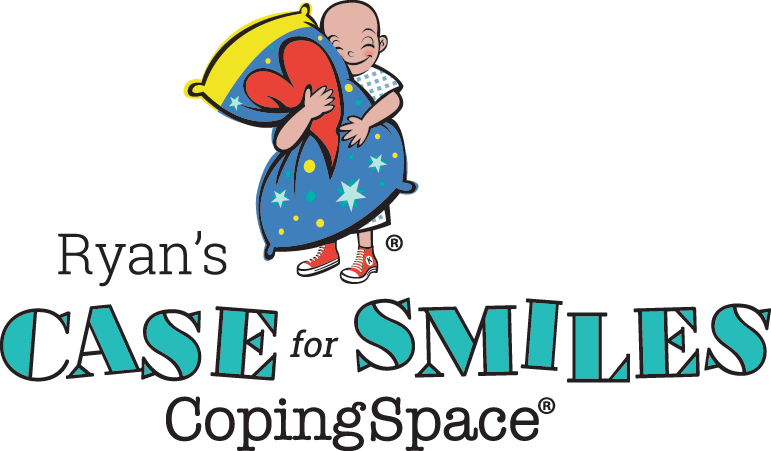SIBLINGS
When a child is ill or injured, siblings generally react in very positive ways and often are happy to help. However, they can still have trouble adjusting and will need support to cope.
When a child is ill or injured, siblings generally react in very positive ways and often are happy to help. However, they can still have trouble adjusting and will need support to cope.
 Being the sibling of an child with an illness or injury is a unique experience. They will need time to adjust to their brother’s/sister’s medical needs and treatment, and to changes in the family routine. If you are at the hospital with their brother/sister, siblings will miss you and may not understand what is happening. They may also want to help out but might not know what to do.
Being the sibling of an child with an illness or injury is a unique experience. They will need time to adjust to their brother’s/sister’s medical needs and treatment, and to changes in the family routine. If you are at the hospital with their brother/sister, siblings will miss you and may not understand what is happening. They may also want to help out but might not know what to do.
Throughout this time, siblings may feel a wide range of emotions. They might feel confused, upset, afraid, numb, or worried. They may also feel angry, jealous or even guilty. For example, it is common for a sibling to sometimes feel jealous of the extra time that a caregiver spends with their brother/sister who is going through treatment. And to be angry at the changes they must make to their lives.
While there are a wide range of normal reactions, there are times when your child may need additional support. What are the signs a sibling isn’t coping well and how can you help? Below you will find information on typical reactions, as well as warning signs based on age and development. You can also visit Coping Tips for Siblings, or check out the age appropriate Children’s page for further guidance.
Signs a Young Sibling Is Not Coping Well
Young siblings (ages 0-4 years old) tend to be affected by what they sense from caregivers and rely on them for a sense of safety. They are still developing their ability to self-soothe and need a caregiver’s presence for distraction, comfort, and support. Therefore, they may experience any separation from family members as traumatic.
As young children are still developing their ability to use words, they have trouble expressing what is wrong or what they need. When they are upset, they tend to SHOW you, rather than tell you. Therefore, it’s best to watch for changes in their behavior to understand how they are feeling and coping. They may also process their feelings through play, drawing and storytelling.
It is normal for a young child to regress in behaviors (bed-wetting, thumb-sucking, etc.) in response to distress. They may also have strong startle responses (being jumpy, frightened, or surprised), nightmares, and increased tantrums and outbursts. Maintaining routines and behavioral limits will help them feel more secure and lend a sense of normalcy. However, if these or any of the below behaviors continue for several weeks or get in the way of everyday life, you may want to seek additional help from their doctor.
Watch to see if your child:
- Wants to be alone or to be with you all the time
- Becomes easily overwhelmed, jumpy or irritable
- Changes their behavior, becoming more sensitive, quiet, or talking back and getting into fights
- Has trouble sleeping or has nightmares
- Misses friends or feels left out
- Develops problems in school
Signs a School Age Sibling Is Not Coping Well
School age siblings (ages 5-12) have begun to develop coping skills for upsetting situations, and probably have a few ways to help themselves feel better or calm down when they are a little bit scared. However, they still need caregivers and trusted adults to understand their sibling’s illness or injury and help them cope.
School age children will watch adults closely and take cues from non-verbal behaviors to determine how serious a situation is and how they should react. If what they are told does not match what they see, they may not believe it. Instead, they will use their imagination to fill in the blanks. For this reason, it is best to be honest and give simple age-appropriate explanations. It is also important to allow for an opportunity to ask questions.
At this age, siblings may experience significant grief and loss reactions, even with a full discussion. It is normal for them to lash out or display anger out of frustration and helplessness. Routines, predictability, and behavioral limits will help re-establish feelings of safety and security. However, if you notice the below warning signs for a few weeks, or they interfere with daily life, you may want to seek additional help from their doctor.
Watch to see if your child:
- Wants to be alone or to be with you all the time
- Becomes easily overwhelmed, jumpy or irritable
- Changes their behavior, becoming more sensitive, quiet, or talking back and getting into fights
- Has trouble sleeping or has nightmares
- Misses friends or feels left out
- Develops problems in school
And of course, there’s no wrong time to seek further support. You know your child best. If you are worried something is wrong, reach out to a medical professional, counselor, or your family’s child life specialist.
Signs a Teenage Sibling Is Not Coping Well
Teen siblings (ages 13+) often have developed coping skills for tough situations and are viewed as independent young adults. When they are upset, they may try to act more grown up or cover up their feelings. However, teenagers still need guidance in a new situation and support to cope.
Teens may respond to their sibling’s illness/injury and medical treatment by withdrawing or acting out (intense anger, emotional outbursts, increased aggression, etc.). They can also experience significant pain, anger, or frustration when their routines and family life is interrupted or limited. Many feel self-conscious or are concerned about not fitting in with their friends. They may no longer want to have people over or may feel they must live a “double life”, one at home and one at school. Trying to maintain their routines, boundaries, and extracurricular activities can help them regain a sense of normalcy and control.
When it comes to their sibling’s medical condition, teens may be sensitive to parents’ or others’ failure to prevent the illness or injury. They can be also unrealistic in their expectations or beliefs about prognosis, recovery, etc. Death may even be a concern, and many will do their own research to fill in the blanks. Finally, teen siblings may be sensitive to being excluded from discussions about their sibling’s condition, treatment, etc. For this reason, it’s best to have open, honest conversations and keep them informed as best you can.
While a wide range of emotions and reactions are normal and healthy, there may be times when your teenager needs additional support.
Watch to see if your teen:
- Wants to be alone or with you all the time
- Becomes easily overwhelmed, jumpy or irritable
- Changes their behavior, becoming more sensitive, quiet, or talking back and getting into fights
- Has trouble sleeping or nightmares
- Misses friends or feels left out
- Develops problems in school
If these behaviors or other changes persist for more than a few weeks or interfere with daily life, you may want to seek help from their doctor.
